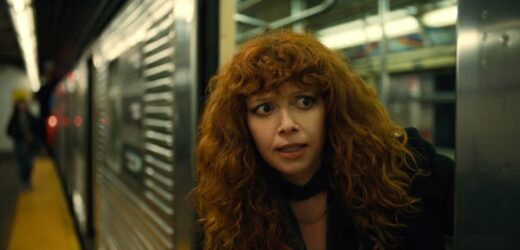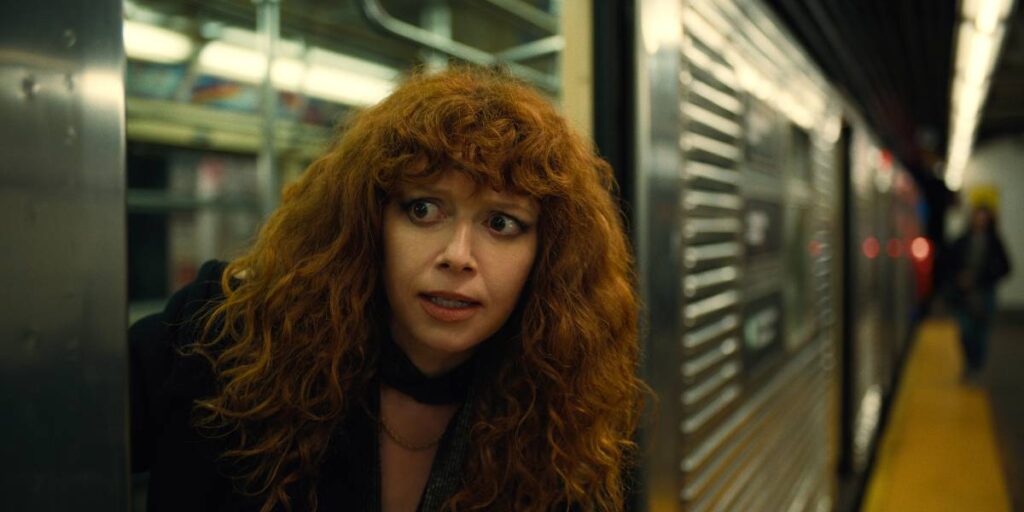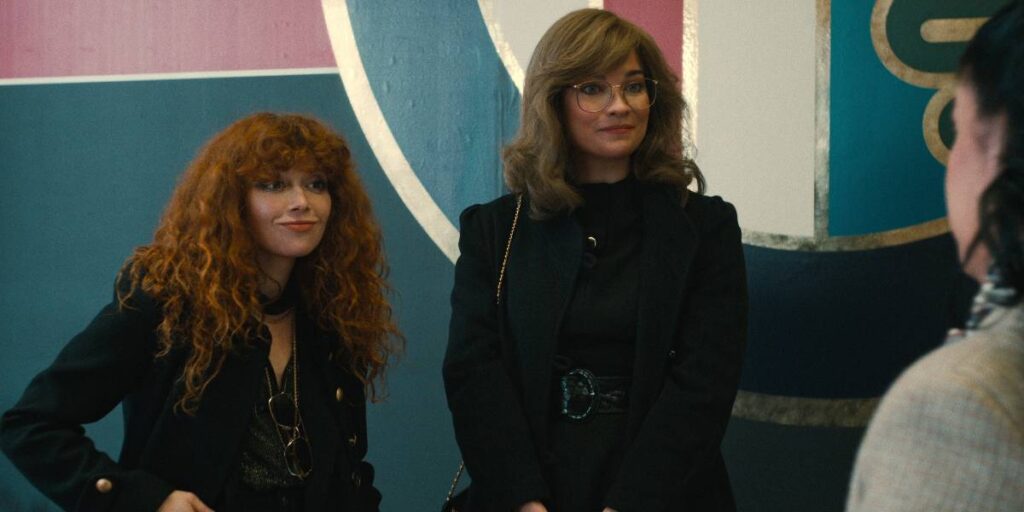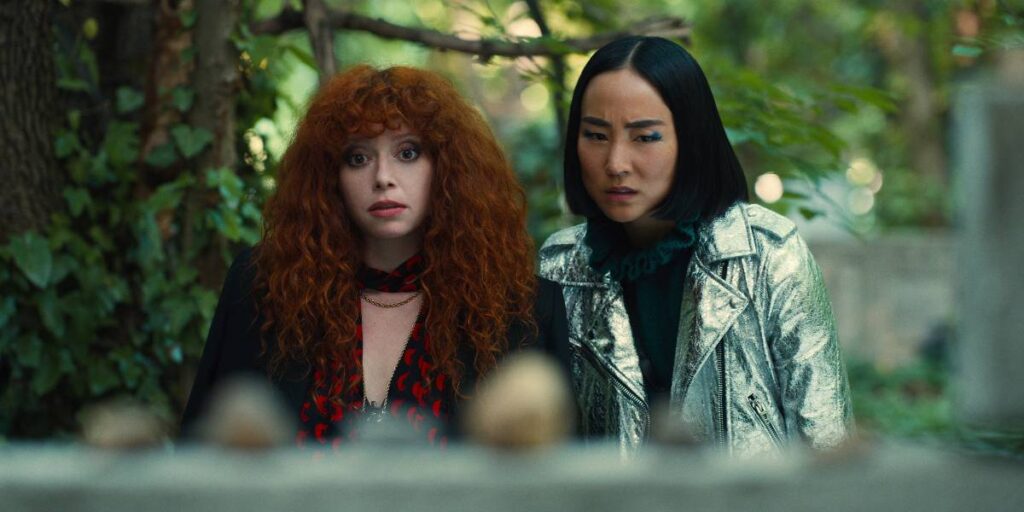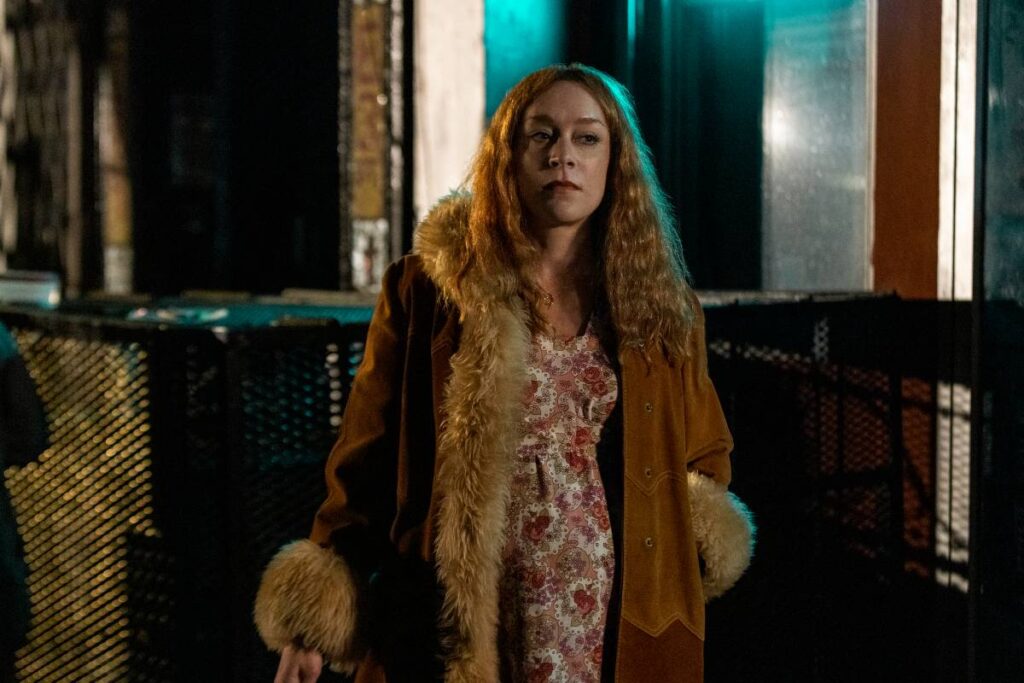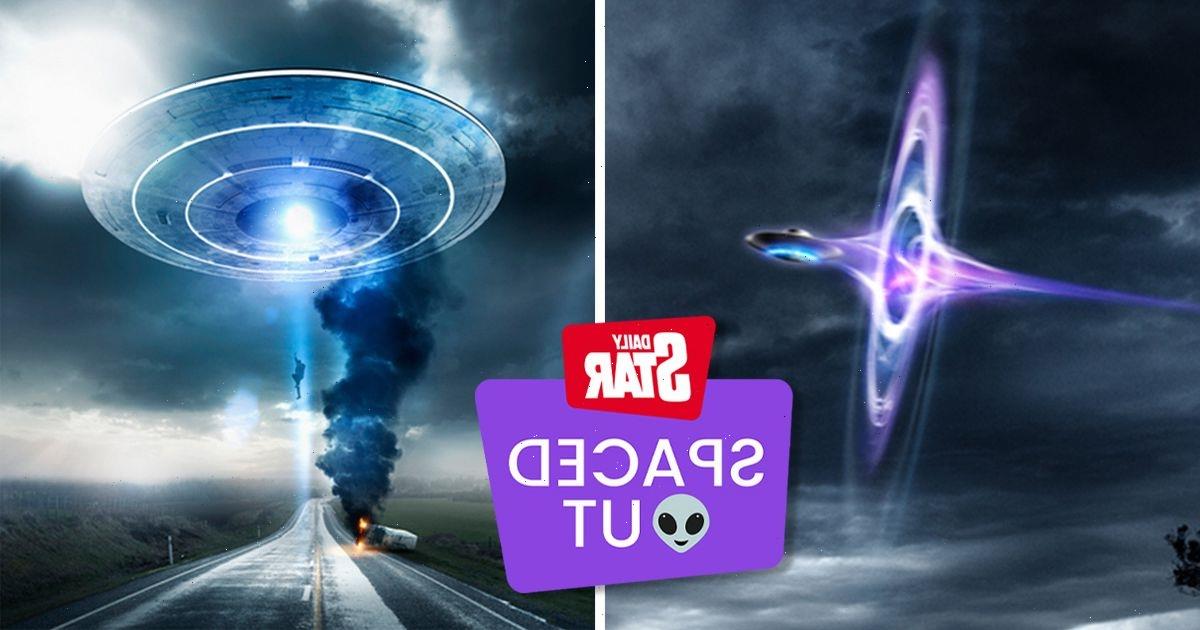Season two of Russian Doll premieres on April 20th. The more I read about it, the more I have absolutely no idea what it will be about. I’m sure that’s partially intentional. After reading Natasha Lyonne’s interview in Cultured, I realize it’s also because she’s still figuring much of the story out. I know the ambiguity will be worth the wait because the advance hype on season two is very good. For the Cultured interview, Natasha was interviewed by friend and Russian Doll co-star/collaborator, Greta Lee (Maxine). They spoke a lot about the concept for the show and what went into to making it during the pandemic. It was such an intimate interview, I almost felt like I was eavesdropping while reading it. But it allowed for some raw, emotional moments, which made it relatable. Natasha’s said the idea behind Russian Doll was about living a meaningful life. The show is getting to the core of Nadia’s life to find the center of her happiness. Natasha said one of the biggest roadblocks people face is that we constantly punish ourselves for falling short.
On the progression of the Russian Doll story: My hope with Russian Doll is that with each season we’d make it to the smaller doll, we would get closer to the heart of the matter. It is a search for the truth. Season one is so much about mortality. The setup is that she’s having this real midlife crisis, she’s turning 40, and, obviously, the character borrows so much from Robert Altman’s The Long Goodbye, and this sort of shtick. Then [this season], it’s like, ok, I’ve stopped dying. I’ve figured out how to go from being a defiant nihilist who’s disconnected from finding human connection and a reason to live—but can I now actually make sense of my life?
What is the ‘smallest doll in Russian Doll: That is a big question. I always think about what it would feel like to be truly free, walking through life unencumbered by expectation or this sense of a life unlived because, inevitably, it is a collective experience that we’re in. We’ve set up all these tent poles and rules for what it means to have a meaningful life. Then we’re always beating ourselves up for falling short. As if it’s about winning and losing; my sense is that this whole idea is warped, and it’s the source of so much suffering.
But I don’t really know what the endgame is. I’m always amazed Netflix and Universal give me money to ask this team of brilliant women to try anyway. We just sit there and essentially think together and read all these books. I don’t know that we’re ever going to crack that littlest doll, but that struggle is at the heart of the question.
On how much her team/people means to her: I love you guys. In some ways that is the littlest fucking Russian doll. Like when you and me are on the motorcycle with the sidecar in Budapest at 4 a.m. and we’re trying to get our goggles off and you’re just doing little Greta bits. That for me is where it gets very moving. Another example is seeing Chloë (Sevigny), who’s my safest person in the world. She embodies a mother who’s ultimately the biggest head-trip relationship of my life, and without a head-trip, she’s externalizing it in her own take on-screen.
Chloë’s scent is so familiar to me as a source of comfort and safety over the past 25 years. I’m just watching her on a screen that’s definitely not scratch and sniff, and yet I’m in the editing room having these emotional, silent tears running down my face because I’m just like, “Look at fucking Chloë showing up in this way.”
[From Cultured]
I feel like such an idiot – I never got why the show was called Russian Doll until this interview. I didn’t understand that each season would be a ‘smaller doll’ examining Nadia’s life as she pursues meaning *smacks head repeatedly*. Maybe I’m not prepared for the next season. Natasha and Greta discussed how unusual it was to film during the pandemic because typically, season two has to be turned around so quickly. But RD season two had years to gestate and be rewritten. Chloë Sevigny, who is Natasha’s best friend, was pregnant and her pregnancy was written into the season initially. She also only had a few days to shoot because of it. By the time they shot, her son was one. Natasha evolved her story because she had so much more time to film with Chloë, but she also was affected by everything Chloë went through having a baby during such a fragile time. The other writers’ experiences during the pandemic shaped the scripts as well. It sounds like it really added depth to the story.
As for beating ourselves up, I can’t disagree. One of the few achievements I can boast is that I can attack myself on virtually anything. I’ve been pondering what it means to live a meaningful life recently and if the second season is addressing the concept of an unlived life, it’ll hit home. I can’t wait. I can’t wait regardless, because I was so pleasantly surprised by season one. I also just noticed Annie Murphy is listed but with no character name on the IMDb page, which means she’s a big reveal. This is going to be good, folks.
Photo credit: Netflix
Source: Read Full Article
